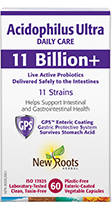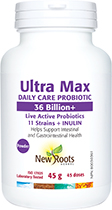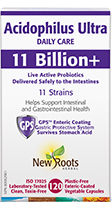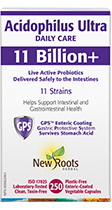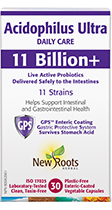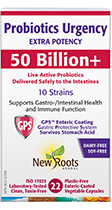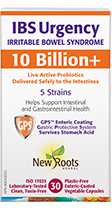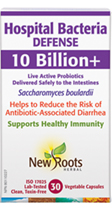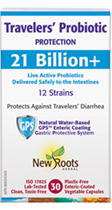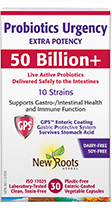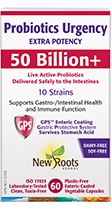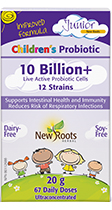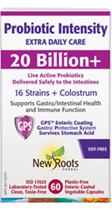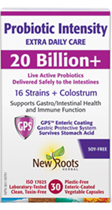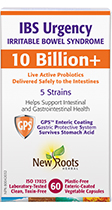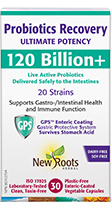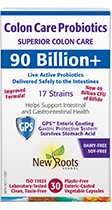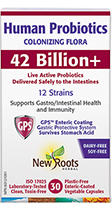Adult Eczema: Naturopathic Approaches
Itchy skin, dryness, redness, and cracking—uncomfortable signs of an eczema flare-up that can range from mild to having a significant impact on quality of life. Corticosteroid creams can do a fine job of targeting symptoms and inflammation associated with eczema, although below are some suggestions to get to the root cause and prevent future flare-ups.
What Is Eczema?
Eczema, also called atopic dermatitis, is a common chronic inflammatory disease affecting the skin barrier which presents in around 2–3% of adults.[1][2] Eczema presentations can look different depending on the individual, although itchy, dry, red skin is commonly seen on flexural surfaces (e.g. elbow crease) and the head and neck (including around the eyes). Often with eczema, we see related asthma, allergies, and constipation. Eczema and its related conditions can be considered as a sign of what is going on inside the body (e.g. nutritional deficiencies, food sensitivities, or imbalances of intestinal bacteria).
Three factors play a role in eczema presentation:
- A dysfunctional skin barrier;
- An inflammatory response to various allergens; and
- Decreased antimicrobial activity of the skin or impaired immune system function.
These interact with each other in a chicken-and-egg type of scenario. Genetics are also strongly involved in eczema presentations.[3]
Environmental factors are regularly the source of allergens or irritants that cause eczema to flare up. This could include various body-care products (e.g. soaps or detergents), tight-fitted clothing, irritating clothing
fabrics (e.g. wool), exposure to smoke, pollution, changes in temperature, and certain foods. Common food allergies or sensitivities related to eczema include gluten, dairy, soy, eggs, fish, shellfish, and peanuts.[4] It is interesting to note that eczema is more prevalent in industrialized countries, which could suggest that excessive hygiene is a contributing factor in a dysfunctional skin barrier and elevated immune response.[5]
 General Naturopathic Treatments
General Naturopathic Treatments
Lifestyle Modifications
One way to improve barrier function of the skin is to promote adequate hydration via lukewarm baths, the use of a natural organic mild soap, and the application of moisturizers immediately after bathing when the skin is still wet. Skin-care products which are labelled to have a pH of 4.5–5 are best because they are closer to the acidic pH of skin. Improving barrier function is important because this will decrease scratching, which itself contributes to damage of the skin barrier, causing greater dysfunction.
Loose-fitting clothing may also be more comfortable during a flare-up. It is less aggravating to wear cotton, silk, or other natural fibres, ensuring to avoid wool which can make itching worse.
Stress management is a key component of preventing eczema recurrence. Periods of stress and anxiety can affect the immune response of the body and increase inflammatory proteins.[6] Psychological stress also directly affects the chronic “itching” pathway of the brain, causing it to become sensitized.[7] Mind-body therapy such as biofeedback and mindfulness can help increase resilience to stressful situations or periods.[8] Biofeedback is a type of therapy in which sensors are attached to your body to keep track of various involuntary mechanisms of the body, such as heart rate or muscle tension. Through this, one is able to learn techniques to control these body functions.
Stress management is different for everyone, so it is important to find what works for you, whether it be journaling, exercising, talking to a loved one, cuddling, or unwinding with a nice book.
 Dietary Modifications
Dietary Modifications
In terms of nutrition, it is always important to incorporate healthy fats into the diet, such as walnuts, avocados, ground flaxseeds, and fish high in omega-3s. This would be the “SMASH” fish: salmon, mackerel, anchovies, sardines, and herring.
Having healthy fats is important because they fight inflammation in the body. Supplementation with fish oils may also be beneficial if you are not able to incorporate these in a high-enough quantity in your diet alone. For adults, between 2 and 4 g of combined EPA and DHA is beneficial.[9] Another type of omega which has been studied for eczema is gamma-linolenic acid, or GLA. GLA is found in high amounts in borage oil and evening primrose oil. Supplementation of 500 mg–1 g of borage oil or 1–2 g of evening primrose oil is suggested dosing.[10]
In general, during eczema flare-ups, it is best to follow an anti-inflammatory–type diet which avoids simple carbohydrates (e.g. white bread and pasta), dairy, nightshade vegetables (e.g. tomatoes and peppers), red or processed meat, processed sugars, and fried foods. However, in order to determine if any underlying food sensitivities are contributing to the recurrence of eczema, the gold standard is to undergo an elimination diet. Every practitioner does this slightly differently in terms of timelines of how long foods should be eliminated for and how and when these foods should be reintroduced.
The elimination diet involves completely removing gluten products, dairy, certain fruits and vegetables, red and processed meats, all sugars and sweeteners, alcohol, and caffeine. In the meantime, gut-healing protocols are often done because (fun fact), a lot of the immune system is in the gut!
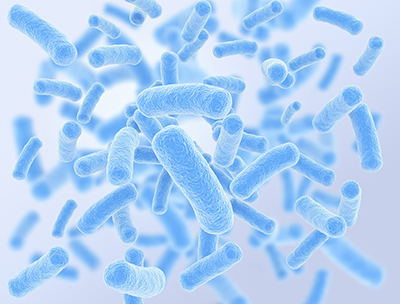 Other Supplementation
Other Supplementation
As “gut-healing protocol” was mentioned just above, one such protocol may include supplementation with a probiotic. Probiotics are live bacteria that are similar to or the same as bacteria that normally live inside the body. In studies of pregnant moms who supplemented with Lactobacillus rhamnosus, their babies were less likely to develop eczema throughout their lifetime.[11] In general, studies have shown that the Lactobacillus species is more beneficial in those with eczema versus Bifidobacterium on its own.[12][13][14]
Prebiotics are sources of indigestible fibre which act as food for probiotics, similar to fertilizer for plants. Prebiotics found in high amounts in foods such as leafy green vegetables, garlic, and onions have also shown promise in treatment of eczema in both children and adults.[15]
Vitamin D3 is something that everyone in Canada should be supplementing with during winter months with low sun exposure. It was shown to be beneficial in individuals with eczema and even in those with eczema who have frequent bacterial skin infections.[16][17] A general maintenance dose of vitamin D3 is 1,000 IU/d, but blood testing of 25-hydroxyvitamin D may be best to determine if further supplementation is required.
Additionally, botanicals (both topical and internal) have benefits for treating and preventing recurrence of eczema. It is up to your naturopathic or botanical medicine practitioner to determine what herbal combination is best to take internally—it could be a combination of herbs which support liver detoxification and modulate the immune system and stress response. Topically, creams with glycyrrhetinic acid, a derivative of licorice root, have shown reduction of eczema symptoms when applied two to three times a day.[18] Other healing herbs include the “Four Cs”: calendula, comfrey, chickweed, and chamomile.
It is important to keep in mind that these are general suggestions which may not cater to your specific needs. Please consult with your health-care practitioner if you are looking to start supplementation so they can determine a safe and relevant dosage for you.
What Does Traditional Chinese Medicine (TCM) Say?
TCM treats eczema as a pattern of deficiency (similar to the way we see it with Western principles). In Chinese medicine, the organ related to skin function is the lung, which controls the opening and closing of pores. The lung also regulates our immune-system function, which is why it is implicated in allergies.
The connected organ of the lung is the large intestine, which is related due to the commonality of constipation being present in individuals with eczema.
Common TCM patterns associated with eczema include lung Qi deficiency, failure of the lungs to regulate pores, failure of the lungs to nourish Wei Qi (defensive Qi/immune system), or large intestine dryness. Your naturopathic doctor or TCM practitioner will be able to diagnose which one of these may be relevant and treat it with acupuncture, herbs, or dietary changes.
References
- Clinical Key. “Clinical overview: Eczema and atopic dermatitis.” Elsevier Point of Care, 2019.
- Suarez, A., et al. “Psychoneuroimmunology of psychological stress and atopic dermatitis: Pathophysiologic and therapeutic updates.” Acta Dermato-Venereologica, Vol. 92, No. 1 (2012): 7–16.
- Clinical Key, op. cit.
- Kaufman, A.J. “Atopic dermatitis.” Chapter 72 (p. 716–725) in Rakel, D. Integrative Medicine, 4th ed. Philadelphia: Elsevier, 2018, ISBN 978-0-323-35868-2, 1152 p.
- Ellis, S.R., et al. “The skin and gut microbiome and its role in common dermatologic conditions.” Microorganisms, Vol. 7, No. 11 (2019): 550.
- Suarez et al., op. cit.
- Suarez et al., op. cit.
- Rakel, op. cit.
- Rakel, op. cit.
- Rakel, op. cit.
- Rakel, op. cit.
- Suarez et al., op. cit.
- Rusu, E., et al. “Prebiotics and probiotics in atopic dermatitis.” Experimental and Therapeutic Medicine, Vol. 18, No. 2 (2019): 926–931.
- Goddard, A., and P. Lio. “Alternative, complementary, and forgotten remedies for atopic dermatitis.” Evidence-Based Complementary and Alternative Medicine, Vol. 2015 (2015): 676897.
- Rusu et al, op. cit.
- Schlichte, M., A. Vandersall, and R. Katta. “Diet and eczema: A review of dietary supplements for the treatment of atopic dermatitis.” Dermatology Practical and Conceptual, Vol. 6, No. 3 (2016): 23–29.
- Goddard and Lio, op. cit.
- Rakel, op. cit.
 Dr. Arlene Dubier, ND
Dr. Arlene Dubier, ND
Practicing in the Mississauga and Toronto areas, her main goal as a health-care practitioner is to provide a nurturing, gentle approach to health-care using natural therapies

 Stores
Stores
